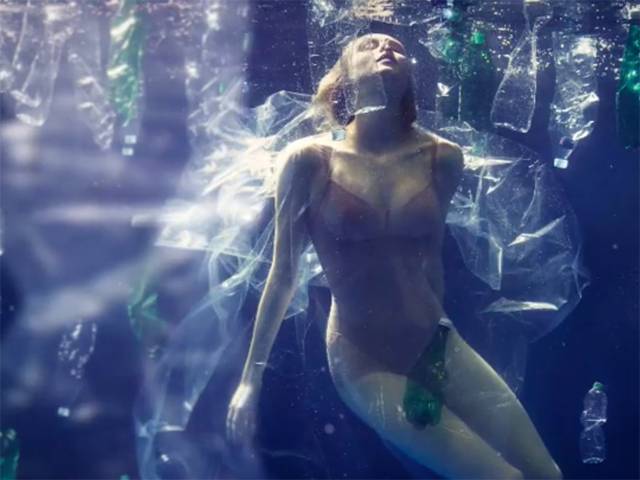Sustainable Beauty Regime

Sustainably driven Makeup Artist, Afton Radojicic is taking an environmentally conscious stand and hoping to drive the beauty industry to follow in her footsteps.
Afton consciously chooses to align herself with organic, natural, cruelty-free, non-toxic, ethical, green and clean beauty brands. Her kit is filled with brands such as Inika, Weleda, Ilia, RMS, Kjaer Weis, Ren Skincare, BYBI and Scout Beauty.
"By being conscious and controlling the products I use, I will limit my impact on the environment and make a positive change to the ecological crisis", says Afton Radojicic.
The industry is slowly incorporating the eco-friendly mindset, slowly stepping up their sustainability game and prioritising our environment. As consumers we can collectively push the beauty industry to make the necessary changes to their products, packaging and processes.
Afton proclaims, "It is inevitable that there must be a shift and a movement within the beauty industry, and I am consciously choosing to play a role in changing things".
Afton shares her tips below for switching to a sustainable beauty regime:
• Support cosmetic companies that follow environmentally friendly practices - ethical sourcing of ingredients, organic and sustainable production methods, green chemistry formulations, sustainable packaging (both consumer and PR mailers), renewable energy sources and use, biodegradability, as well as carbon, water and waste management.
• Purchase brands that don't use harmful chemicals - ensure they are free from parabens, sulphates, formaldehyde, propylene glycol, dimethicone, butylated compounds and phthalates.
• Ensure brand is cruelty-free and against animal testing - look for official certification by PETA, CCF and the Leaping Bunny.
• Stop using makeup wipes - opt for a re-usable cotton pad or makeup remover.
• Choose refillables - that way packaging can be re-used and not wasted.
A few facts to face:
• Globally, the cosmetics industry creates over 120 billion units of packaging every year - most non-recyclable!
• To put it into perspective, it takes more than 1000 years for a plastic fork to degrade
• Studies reveal that today 100% of marine turtles have ingested plastic pollution
• This crisis sadly does not just begin and end with plastic, cardboard packing from products contributes to the loss of 18 million acres of forest each year
Afton consciously chooses to align herself with organic, natural, cruelty-free, non-toxic, ethical, green and clean beauty brands. Her kit is filled with brands such as Inika, Weleda, Ilia, RMS, Kjaer Weis, Ren Skincare, BYBI and Scout Beauty.
"By being conscious and controlling the products I use, I will limit my impact on the environment and make a positive change to the ecological crisis", says Afton Radojicic.
The industry is slowly incorporating the eco-friendly mindset, slowly stepping up their sustainability game and prioritising our environment. As consumers we can collectively push the beauty industry to make the necessary changes to their products, packaging and processes.
Afton proclaims, "It is inevitable that there must be a shift and a movement within the beauty industry, and I am consciously choosing to play a role in changing things".
Afton shares her tips below for switching to a sustainable beauty regime:
• Support cosmetic companies that follow environmentally friendly practices - ethical sourcing of ingredients, organic and sustainable production methods, green chemistry formulations, sustainable packaging (both consumer and PR mailers), renewable energy sources and use, biodegradability, as well as carbon, water and waste management.
• Purchase brands that don't use harmful chemicals - ensure they are free from parabens, sulphates, formaldehyde, propylene glycol, dimethicone, butylated compounds and phthalates.
• Ensure brand is cruelty-free and against animal testing - look for official certification by PETA, CCF and the Leaping Bunny.
• Stop using makeup wipes - opt for a re-usable cotton pad or makeup remover.
• Choose refillables - that way packaging can be re-used and not wasted.
A few facts to face:
• Globally, the cosmetics industry creates over 120 billion units of packaging every year - most non-recyclable!
• To put it into perspective, it takes more than 1000 years for a plastic fork to degrade
• Studies reveal that today 100% of marine turtles have ingested plastic pollution
• This crisis sadly does not just begin and end with plastic, cardboard packing from products contributes to the loss of 18 million acres of forest each year
MORE





